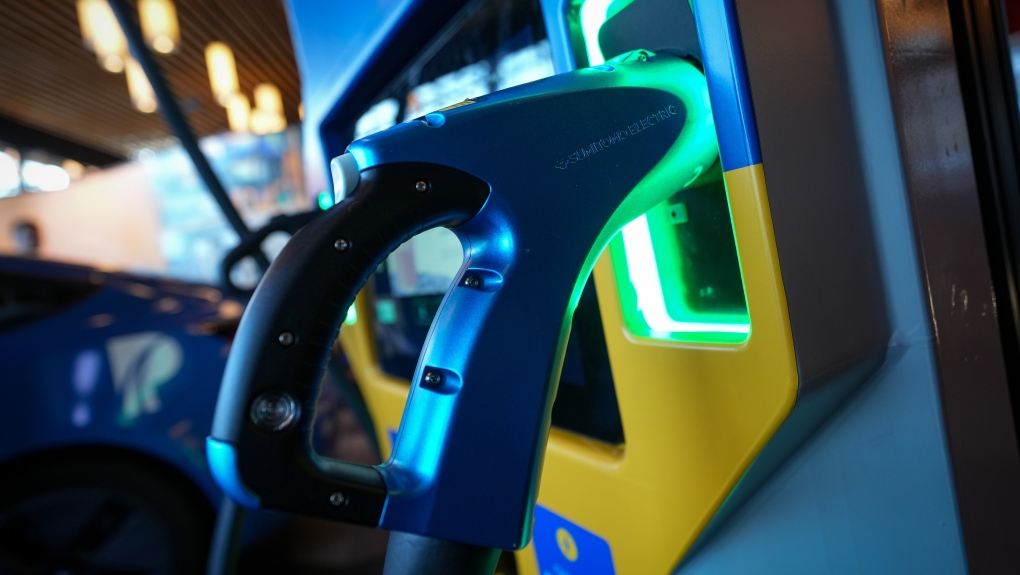Unless policies or technologies change, the ownership cost of electric vehicles (EVs) needs to decrease by 31 per cent if Canada to wants to reach its sales target of 60 per cent EVs by 2030, according to a new report released Thursday by Parliamentary Budget Officer Yves Giroux.
Last December, the federal government unveiled its Electric Vehicle Availability Standard that outlined zero-emission vehicle sales targets for automakers. The standard requires all new light-duty sales in Canada to be electric or plug-in hybrid by 2035. There are also interim targets of at least 20 per cent of all sales being EVs by 2026 and 60 per cent by 2030.
Those federal government targets come as growth forecasts for auto companies have plateaued and concerns about charging infrastructure persist. The price of EVs has also pushed the cars out of reach for many consumers. According to the Canadian Black Book, the average cost of an EV was $73,000 in 2023.



Maybe don’t put a 100% tarrif on affordable Chinese EVs then?
Hard disagree, we should be reducing our reliance on China, not increasing it.
I agree, but we also need to lower our GHG emissions. Since we refuse to improve urban planning or transit, EVs are a step in the right direction.
Correct, but that doesn’t mean we need the ones designed and manufactured in China. There are already other options designed and manufactured in better countries.
And the ones from China still cost less after the 100% tariff
And that isn’t suspicious to you at all?
What’s suspicious is western car companies refusing to make small cheap EVs that consumers might actually want to buy.
This is a huge factor. It isn’t just the initial costs. A smaller EV is lighter, a simple EV is lighter, this lets it use less energy overall which ultimately means you pay less in electricity.
Smaller vehicles tend to have smaller tires, which are cheaper. Cheaper vehicles are also cheaper to insure than more expensive ones.
All these factors combined can easily be the difference between affording a new EV or having to stick in the used ICE market.
No, that’s pretty much in line with America’s oil first economy.
I wrote this for another post but it’s still relative here.
How many times have we bailed out or given loans/grants to the Big Three?
1979 - Dec. 21- Chrysler receives a $1.5 billion federal loan guarantee, known as the Chrysler Loan Guarantee Act of 1979, the first big US automaker bailout. Source
Dec 2008 - President Bush announces a $13.4 billion emergency bailout for GM and Chrysler to be paid by mid-January 2009. (source same as above)
Perhaps, but since they’re prohibitively expensive we aren’t buying enough of them.
China or oil? Which do you want to be more dependent on at the moment
Switching to cheap EVs does not get us off fossil fuels as much as you think.
Personal transportation only accounts for something like 20% of the total fossil fuel use.
I think 20% is pretty big. Not big enough, but anyone who thinks they’ve done all they need by buying an ev doesn’t understand the situation. So yeah necessary but not sufficient
Only 20%, that’s pretty big for a single source.
Increasing trade interdependency is a good way to avoid hot conflicts. It’s the principle behind the EU, it’s the principle behind the detente strategy during the Cold War, and it’s the narrative of globalization that has been pushed from the WTO down, ever since we started protesting neoliberal globalization in the 1990ies.
You can start by tossing all your electronics, then.
Do you understand what reduce means?
Some of your electronics, then.
Please go look up what reduce means in Reduce, Reuse, Recycle.
You clearly missed that part of your primary education curriculum.
Use fewer of your electronics, then.
Still failing kindergarten I see.
Sorry for your loss.
It’s really telling that Chinese EVs (like imported Teslas) were basically considered fine until the prospect of them being affordable to the middle class arose. That’s when we started hearing about labour abuses and fires that only happen with * cheap Chinese* batteries.
It’s not like Tesla has a stellar reputation for quality and reliability. They started powerwall as a way to offload bad/ prematurely failing batteries. Don’t get me wrong, powerwall is a good idea. But pretending like BYD is going to have terrible batteries and that’s why we need tariffs is bad.
China has labour and human rights abuses (eg genocide of Uyghers in Xinjiang [cultural genocide is still genocide]). Imo Canada is doing a better job of reconciling with its history/present of cultural genocide than China is. Canada’s TFW program probably results in lots of horrible abuses that we don’t hear about, but i think this program may be on its way out too. These issues don’t only apply to EVs though.
The only things that’re EV specific are lithium batteries and automotive manufacturing.
EV tariffs are protectionism: We want to protect domestic automotive (and para-automotive) manufacturing capabilities, and our investments in EVs/green tech.
I don’t think 100% tariffs can be justified on EVs alone.
Because they don’t care about their workers ? Do we really want cars made by Chinese slaves ? Like we do with our t-shirts ? Fuck no.
Most of them are super automated… Do you mean the robots that Nio uses?